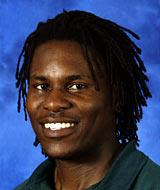

Impairments resulting from a process of dementia therefore come into conflict with the central values of a culture centered on cognition and on the individual.
Pommie knowlton full#
To be a person in the full sense of the word is, in Western cultures, decisively bound up with the intactness of functions such as consideration, rationality, memory, and with the autonomy that is based on them. Alzheimer’s disease and other dementias seem particularly unsettling and threatening, as they call into question that which we perceive as the foundation of being ourselves: our cognitive and reflective capacities. “I have, so to speak, lost myself”-this was the complaint of Auguste Deter, the first patient who was diagnosed by Alois Alzheimer in 1901 with the illness that was later named after him (Maurer et al. A final look is given to narrativistic and constructionist concepts of the self in dementia. The ethical consequences of an embodied approach to dementia are outlined. This is contrasted with the preservation of individual forms of body memory even in the later stages of the illness.

After describing the different types of body memory, the paper develops a phenomenology of dementia as a loss of reflexivity and meta-perspective.

In this perspective, selfhood is primarily constituted by pre-reflective self-awareness and the body memory of an individual, which consists in the embodiment and enactment of familiar habits, practices and preferences. Based on the phenomenology of embodiment, this paper elaborates a different approach to personal identity in dementia. Such concepts, however, are situated within a dualistic framework, in which the body is regarded as a mere vehicle of the person, or a carrier of the brain as the organ of mental faculties. As a consequence, persons with severe dementia are threatened to lose the status of persons. Theories of personal identity in the tradition of John Locke and Derek Parfit emphasize the importance of psychological continuity and the abilities to think, to remember and to make rational choices as a basic criterion for personhood.


 0 kommentar(er)
0 kommentar(er)
